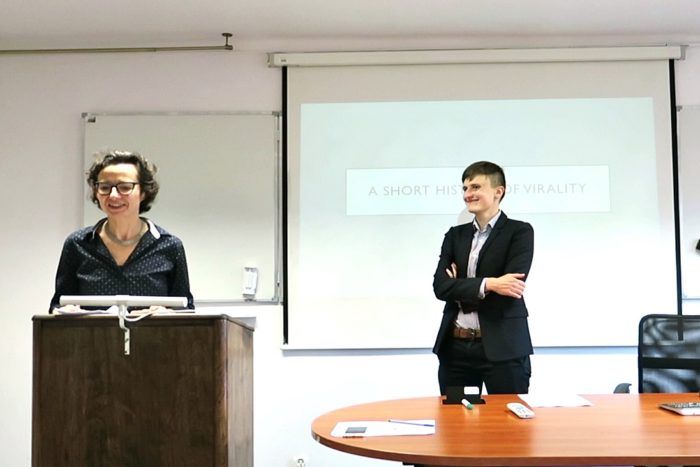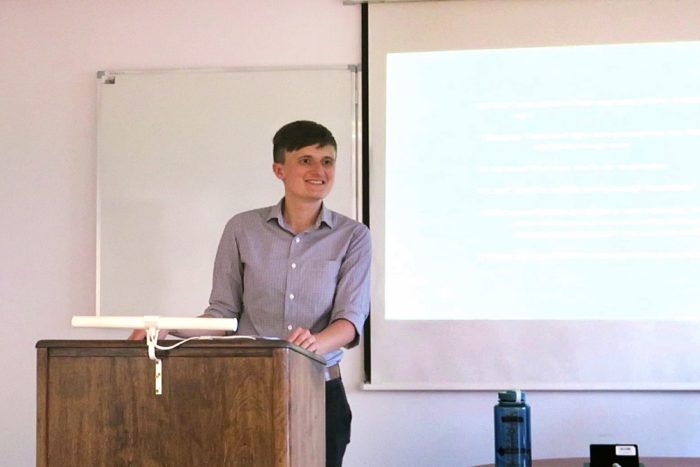We are pleased to announce a lecture by
Dr Marta Figlerowicz
Yale University
A Short History of Virality
The lecture is going to be a part of the
American Studies Colloquium Series.
Thursday, October 10, 2019
at 4:00 p.m.
Where?
American Studies Center, room 317,
al. Niepodległości 22, Warsaw.
What?
The lecture will talk about what virality is and how does one represent it? “A Short History of Virality” draws on research in the history of science, network theory, and media theory, to outline how the phenomenon of virality was gradually “discovered” and theorized. It then discusses recent representations of viral network events in American cinema, which illustrate various aspects of virality’s political, phenomenological, and scolar contradictions.
Who?
Marta Figlerowicz is an Associate Professor of Comparative Literature, English, and Film and Media at Yale University. A comparative scholar of philosophies and representations of intersubjectivity, she is the author of two books, Flat Protagonists (2016) and Spaces of Feeling (2017). Her writing has also appeared in academic and non-academic publications ranging from Foreign Affairs to New Literary History. This talk derives from her new book project in progress Mythical Thinking: The Self in the Age of New Media.
Her research articulates a counter-tradition to aesthetic individualism that has been present in Western art and literature at least since the seventeenth century, and which takes on particularly striking resonances in our contemporary digitally-mediated environments.
She also writes literary and cultural criticism for publications such as The Washington Post, n+1, Cabinet, Jacobin, The Los Angeles Review of Books, The Yale Review, Logic, and Boston Review.
At Yale, she have taught courses on philosophies of the self, modernism, literary and critical theory, and world cinema. Marta Figlerowicz is a co-organizer of Utopia after Utopia, a research initiative on contemporary post-socialist critical theory and art practice, and co-PI for an upcoming Sawyer Seminar called Ordering the Multitude: Encyclopedia, Atlas, Museum. She is originally from Poznań, Poland.







